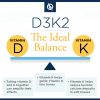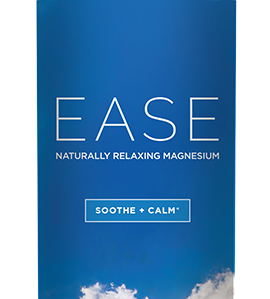What Your Need To Know About Unlocking the Secrets of Magnesium and Vitamin D: The 2 Must-Have Essential Supplements for Optimal Health
Unlocking the Secrets of Magnesium and Vitamin D: The 2 Must-Have Essential Supplements for Optimal Health
Overview: Importance of Magnesium and Vitamin D for Overall Health
The Power of Magnesium and Vitamin D – As a health-conscious individual, I am always on the lookout for ways to optimize my well-being.
In my quest for optimal health, I have come across two essential supplements that play a crucial role in maintaining overall vitality: magnesium and vitamin D. These two nutrients are often underrated, but their importance cannot be overstated. In this article, I will delve into the secrets of magnesium and vitamin D, exploring their functions, benefits, deficiency signs, sources, recommended daily intake, absorption optimization, and their role in specific health conditions. By the end of this article, you will have a comprehensive understanding of why magnesium and vitamin D supplements are essential for your health.
Functions and Benefits of Magnesium in the Body
Magnesium is a mineral that is involved in over 300 biochemical reactions in the body. From supporting energy production to maintaining healthy muscle and nerve function, magnesium is a multitasking mineral. One of its primary functions is its role in enzymatic reactions, where it acts as a cofactor. Magnesium also plays a crucial role in regulating blood pressure, blood sugar levels, and protein synthesis. Additionally, this mineral supports the immune system, aids in DNA synthesis, and promotes bone health.
The benefits of magnesium are numerous and diverse. It helps to alleviate muscle cramps and spasms, making it beneficial for athletes and individuals suffering from muscle-related conditions. Magnesium also supports cardiovascular health by regulating blood pressure and reducing the risk of heart disease. Furthermore, this mineral has been found to improve mood and reduce symptoms of anxiety and depression. It can also help with sleep disorders, such as insomnia. Overall, magnesium is an essential nutrient that contributes to overall health and well-being, and provides optimal health and healing when taken individually or together as magnesium and vitamin D.
Functions and Benefits of Vitamin D in the Body
Vitamin D, often referred to as the “sunshine vitamin,” is a fat-soluble vitamin that plays a vital role in several bodily functions. One of the primary functions of vitamin D is its role in calcium absorption and bone health. It helps to regulate calcium and phosphorus levels in the body, promoting strong and healthy bones. Vitamin D also plays a crucial role in supporting the immune system, as it enhances the function of immune cells and reduces the risk of infections.
The benefits of vitamin D go beyond bone health and immune support. This vitamin has been linked to a reduced risk of chronic diseases such as heart disease, diabetes, and certain types of cancer. It also plays a role in mood regulation, as low levels of vitamin D have been associated with an increased risk of depression. Furthermore, vitamin D has been found to support cognitive function and may help prevent age-related cognitive decline. It is clear that vitamin D is an essential nutrient for overall health and should not be overlooked.
As of my last update in January 2022, magnesium and vitamin D deficiencies remain prevalent health concerns in the United States, with significant portions of the population falling short of recommended intake levels. The rates of deficiency vary across different age groups, genders, and demographics.
Magnesium and Vitamin D: Essential Supplements for Your Medicine Cabinet
In the realm of health and wellness, there’s a plethora of supplements vying for our attention. Among the myriad options, two stand out as crucial additions to your medicine cabinet: Magnesium and Vitamin D. These two nutrients play indispensable roles in the body’s functioning and are often deficient in modern diets. Let’s delve into why they’re so important and why you should consider incorporating magnesium and vitamin D into your daily routine.
Magnesium: The Mighty Mineral
Magnesium is a mineral involved in over 300 enzymatic reactions in the body, ranging from energy production to muscle function and beyond. Despite its significance, studies suggest that a large portion of the population is deficient in magnesium. Factors such as soil depletion, processed food consumption, and certain medical conditions contribute to this deficiency.
So, why is magnesium essential?
- Bone Health: Magnesium works in tandem with calcium and Vitamin D to promote bone health. It helps convert Vitamin D into its active form, which is necessary for calcium absorption and bone mineralization (This is great reason to take magnesium and vitamin D together).
- Heart Health: Magnesium plays a vital role in maintaining normal heart rhythm and supporting cardiovascular health. Research indicates that adequate magnesium intake may reduce the risk of heart disease and stroke.
- Muscle Function: Magnesium is crucial for muscle contraction and relaxation. Insufficient magnesium levels can lead to muscle cramps, spasms, and weakness.
- Mood Regulation: Magnesium is involved in the production of neurotransmitters like serotonin, which regulates mood and promotes relaxation. Low magnesium levels have been linked to anxiety, depression, and other mood disorders.
- Blood Sugar Regulation: Magnesium plays a role in insulin sensitivity and glucose metabolism. Adequate magnesium intake may help lower the risk of type 2 diabetes.
Vitamin D: The Sunshine Vitamin
Vitamin D, often referred to as the “sunshine vitamin,” is unique because our bodies can produce it when exposed to sunlight. Despite this, many people still don’t get enough Vitamin D, especially those living in northern latitudes or spending most of their time indoors.
Here’s why Vitamin D is crucial:
- Bone Health: Like magnesium, Vitamin D is essential for calcium absorption and bone mineralization. It helps maintain optimal bone density and reduces the risk of fractures and osteoporosis. Again, another reason to take magnesium and vitamin D together.
- Immune Function: Vitamin D plays a vital role in modulating immune function, helping the body defend against infections and diseases. Low Vitamin D levels have been associated with an increased susceptibility to respiratory infections and autoimmune disorders.
- Mood and Cognitive Function: Emerging research suggests that Vitamin D may play a role in regulating mood and cognitive function. Deficiencies have been linked to conditions such as depression, dementia, and cognitive decline.
- Muscle Strength: Adequate Vitamin D levels are crucial for muscle strength and function, reducing the risk of falls and fractures, especially in older adults.
- Cardiovascular Health: Some studies suggest that Vitamin D may help lower blood pressure, reduce inflammation, and improve cardiovascular health overall.
Why Keep Magnesium and Vitamin D in Your Medicine Cabinet?
Having magnesium and Vitamin D supplements readily available in your medicine cabinet ensures you can maintain optimal levels of magnesium and vitamin D as essential nutrients, especially during times when dietary intake may be insufficient or when specific health conditions require additional support.
However, it’s essential to consult with a healthcare professional before starting any new supplement regimen, as individual needs vary, and excessive intake of certain nutrients can have adverse effects.
Magnesium and Vitamin D are two indispensable supplements that deserve a place in your medicine cabinet. From supporting bone health and muscle function to regulating mood and immune response, these nutrients play critical roles in overall well-being. By prioritizing adequate intake of magnesium and Vitamin D, you can enhance your health and vitality for years to come.
Best Forms of Magnesium and Vitamin D
Magnesium and vitamin D supplements come in various forms, each with unique properties and benefits. Here are some of the most common forms of magnesium and their respective advantages:
- Magnesium Citrate:
- Benefits: Magnesium citrate is highly bioavailable, meaning it is easily absorbed by the body. It is commonly used as a laxative to relieve constipation due to its ability to draw water into the intestines and soften stool. Additionally, magnesium citrate may support overall magnesium levels in the body, promoting relaxation and muscle function.
- Magnesium Glycinate:
- Benefits: Magnesium glycinate is a chelated form of magnesium, meaning it is bound to glycine, an amino acid. This form is well-absorbed and less likely to cause gastrointestinal side effects compared to other forms. Magnesium glycinate may be beneficial for promoting relaxation, improving sleep quality, and reducing muscle tension and cramps.
- Magnesium Oxide:
- Benefits: Magnesium oxide contains a high concentration of elemental magnesium but has lower bioavailability compared to other forms. It is commonly used as a magnesium supplement, particularly for individuals with magnesium deficiency. However, it may cause gastrointestinal discomfort in some individuals due to its laxative effect.
- Magnesium Chloride:
- Benefits: Magnesium chloride is often used in topical formulations, such as magnesium oil or sprays, for transdermal absorption. It may help alleviate muscle soreness, promote relaxation, and support overall magnesium levels. Topical application bypasses the gastrointestinal tract, making it suitable for individuals with sensitive digestion or those who experience gastrointestinal side effects from oral magnesium supplements.
- Magnesium L-Threonate:
- Benefits: Magnesium L-threonate is a newer form of magnesium that has shown promise for its ability to penetrate the blood-brain barrier effectively. This form may support cognitive function, memory, and brain health by increasing magnesium levels in the brain. This is the only form of Magnesium that is known to cross the blood brain barrier and one that I prefer to take as a supplement.
Each form of magnesium and vitamin D offers distinct advantages, so choosing the most suitable form depends on individual needs, preferences, and health goals. It’s essential to consult with a healthcare professional before starting any new supplement regimen to determine the appropriate form and dosage of magnesium and vitamin D for your specific circumstances.
Magnesium and Vitamin D supplements are available in several forms, each with its own unique characteristics and benefits. Here are some of the most common forms of vitamin D:
- Vitamin D2 (ergocalciferol):
- Source: Derived from plant sources, such as fungi and yeast, and often used in fortified foods and supplements.
- Conversion: Metabolized in the liver to form calcidiol (25-hydroxyvitamin D2), which is then further converted to calcitriol (the active form of vitamin D) in the kidneys.
- Benefits: Vitamin D2 supplementation is effective in raising blood levels of vitamin D and can be a suitable option for individuals with specific dietary preferences or restrictions.
- Vitamin D3 (cholecalciferol):
- Source: Derived from animal sources, particularly lanolin (sheep’s wool), and also synthesized in the skin upon exposure to sunlight. This is the form of Vitamin D that you would want to take, but remember to take it with Vitamin K2
- Conversion: Similar to vitamin D2, vitamin D3 undergoes conversion in the liver and kidneys to its active form, calcitriol.
- Benefits: Vitamin D3 is considered the most effective form of vitamin D supplementation due to its superior bioavailability and potency. It is widely used to raise and maintain optimal vitamin D levels in the body.
- Vitamin D Analogs (e.g., calcitriol, alfacalcidol):
- Source: Synthetic forms of vitamin D that are modified to have specific properties or effects.
- Conversion: These analogs are often used in medical treatments for conditions such as kidney disease, bone disorders, and psoriasis, as they can bypass some of the steps in the conversion process and directly affect calcium and phosphorus metabolism.
- Benefits: Vitamin D analogs may be prescribed by healthcare providers for specific medical conditions where conventional vitamin D supplementation is not effective or suitable.
- Vitamin D in Combination with Calcium:
- Source: Some supplements combine vitamin D with calcium, as these nutrients work synergistically to support bone health and calcium absorption.
- Benefits: Combined supplementation may be beneficial for individuals at risk of osteoporosis or those with inadequate calcium intake. However, it’s essential to consider the appropriate balance of calcium and vitamin D for optimal absorption and health outcomes.
These various forms of magnesium and vitamin D offer flexibility in supplementation, allowing individuals to choose the most suitable option based on their preferences, dietary habits, and health needs. It’s essential to consult with a healthcare professional before starting any new supplement regimen to determine the appropriate form and dosage of magnesium and vitamin D for your specific circumstances.
Signs of Magnesium and Vitamin D Deficiency
Magnesium and vitamin D deficiencies are common, yet often overlooked. The signs and symptoms of magnesium and vitamin D deficiencies can vary but recognizing them is crucial for maintaining optimal health. Common signs of magnesium deficiency include muscle cramps, spasms, and weakness. Fatigue, irritability, and difficulty sleeping may also indicate low magnesium levels. In severe cases, magnesium deficiency can lead to abnormal heart rhythms, numbness, and tingling.
Vitamin D deficiency is also widespread, especially in regions with limited sunlight exposure. Symptoms of vitamin D deficiency include fatigue, muscle weakness, bone and joint pain, and frequent infections. Low mood, depression, and impaired cognitive function may also be signs of vitamin D deficiency. It is important to note that these symptoms can be non-specific and may overlap with other health conditions. If you suspect a deficiency, it is best to consult with a healthcare professional for proper diagnosis and treatment.
Magnesium Deficiency:
According to the National Health and Nutrition Examination Survey (NHANES), conducted by the Centers for Disease Control and Prevention (CDC), approximately 48% of Americans consume less magnesium than recommended. However, studies suggest that magnesium deficiency is as high as 80%. This means that at least 80% Americans are deficient and not even know it. Magnesium deficiency is often misdiagnosed because it does not show up in blood tests since only about 1% of the body’s magnesium is store in the blood. Do you know your level? Magnesium deficiency is a predictor of diabetes and hearth disease. Several factors contribute to this deficiency:
- Dietary Factors: The Western diet, characterized by processed foods and low intake of fruits, vegetables, nuts, and seeds, often lacks sufficient magnesium. Additionally, modern agricultural practices have led to soil depletion, resulting in lower magnesium levels in crops.
- Gastrointestinal Disorders: Conditions such as celiac disease, Crohn’s disease, and gastrointestinal surgery can impair magnesium absorption, leading to deficiency.
- Medications: Certain medications, including proton pump inhibitors (PPIs), diuretics, and antibiotics, can interfere with magnesium absorption or increase urinary excretion, contributing to deficiency.
- Chronic Health Conditions: Individuals with diabetes, hypertension, and other chronic diseases may have higher magnesium requirements due to increased urinary loss or altered metabolism.
- Lifestyle Factors: Excessive alcohol consumption, high stress levels, and intense physical activity can deplete magnesium stores in the body.
Vitamin D Deficiency:
When discussing magnesium and vitamin D, you should know that Vitamin D deficiency is also widespread in the United States, affecting approximately 42% of the population, according to NHANES data. However, studies suggest over 94% of the American population do not meet the daily requirement for Vitamin D. Vitamin D deficiency is linked to a host of debilitating chronic disease including ankylosing spondylitis, Alzheimer’s disease, insulin resistance, diabetes type 2. Contributing factors include:
- Limited Sun Exposure: Vitamin D is synthesized in the skin upon exposure to sunlight. Factors such as indoor lifestyles, sunscreen use, air pollution, and geographic location (especially in northern latitudes) can limit sunlight exposure, leading to inadequate vitamin D production.
- Dietary Intake: While some foods contain small amounts of vitamin D, it can be challenging to obtain sufficient levels through diet alone, especially for individuals with restrictive diets or lactose intolerance.
- Obesity: Vitamin D is fat-soluble, and excess body fat can sequester vitamin D, reducing its bioavailability and contributing to deficiency.
- Age and Skin Pigmentation: Older adults and individuals with darker skin pigmentation have reduced capacity to produce vitamin D in response to sunlight exposure, putting them at higher risk of deficiency.
- Medical Conditions: Certain medical conditions, such as malabsorption disorders (e.g., celiac disease, cystic fibrosis), liver or kidney diseases, and obesity-related metabolic syndrome, can impair vitamin D absorption, metabolism, or utilization.
Addressing magnesium and vitamin D deficiencies requires a multifaceted approach, including dietary changes, supplementation magnesium and vitamin D when necessary, sunlight exposure, and addressing underlying health conditions. Taking magnesium and vitamin D together along with Vitamin K2 create a synergy for optimal health. Healthcare providers play a crucial role in assessing individual needs and providing personalized recommendations to optimize magnesium and vitamin D status.
Sources of Magnesium and Vitamin D
Obtaining sufficient magnesium and vitamin D through diet alone can be challenging. However, there are several food sources that can help boost your intake. Good sources of magnesium include sunlight,leafy green vegetables, nuts and seeds, whole grains, legumes, and seafood. Dark chocolate and avocados are also magnesium-rich foods that can be enjoyed in moderation. When it comes to vitamin D, fatty fish such as salmon and mackerel, fortified dairy products, and egg yolks are the primary dietary sources. However, it is important to note that these food sources may not provide adequate levels of magnesium and vitamin D, especially for individuals with increased needs or limited dietary intake.
Recommended Daily Intake of Magnesium and Vitamin D
The recommended daily intake of magnesium and vitamin D varies depending on age, sex, and individual needs. Generally, the recommended daily intake of magnesium for adults is around 400-420 mg for men and 310-320 mg for women. Pregnant and lactating women may require slightly higher amounts. As for vitamin D, the recommended daily intake is generally 600-800 IU (International Units) for adults. However, individuals with limited sun exposure, deficiency, or specific health conditions may require much higher doses. It is important to consult with a healthcare professional to determine the appropriate dosage for your individual needs.
How to Optimize Magnesium and Vitamin D Absorption
Optimizing the absorption of magnesium and vitamin D is crucial to ensure their effectiveness. Several factors can affect the absorption of these nutrients. For magnesium, it is important to consume foods rich in this mineral alongside foods that promote its absorption, such as foods high in vitamin D, vitamin K2, and phosphorus. Additionally, avoiding excessive intake of caffeine and alcohol, as they can interfere with magnesium absorption, is recommended.
Vitamin D absorption is closely linked to sun exposure and Vitamin K2. Spending time outdoors and getting sunlight on your skin can help your body produce vitamin D naturally. However, in regions with limited sunlight or during winter months, supplementation may be necessary. It is also important to note that vitamin D is a fat-soluble vitamin, so consuming it with a source of healthy fat can enhance its absorption. Including sources of healthy fats such as olive oil, avocado, and nuts in your meals can support the absorption of vitamin D. Finally, Vitamin D must always be taken with Vitamin K2 for better results.
The Role of Magnesium and Vitamin D in Specific Health Conditions
Magnesium and vitamin D play a significant role in specific health conditions. For example, magnesium has been found to be beneficial for individuals with migraines, as it helps relax blood vessels and reduce inflammation. It may also help alleviate symptoms of premenstrual syndrome (PMS) and improve mood in individuals with depression and anxiety. Additionally, magnesium has been shown to support cardiovascular health and reduce the risk of heart disease.
Magnesium and Vitamin D are particularly important for bone health and the prevention of osteoporosis. It is also beneficial for individuals with autoimmune diseases, as it helps regulate the immune system. Vitamin D has been found to reduce the risk of multiple sclerosis and rheumatoid arthritis. Furthermore, this vitamin plays a role in preventing certain types of cancer, including breast, colon, and prostate cancer. The role of magnesium and vitamin D in specific health conditions highlights their importance as essential supplements for overall health.
Supplementing with Magnesium and Vitamin D
While it is possible to obtain magnesium and vitamin D through diet alone, supplementation may be necessary for individuals with increased needs or limited dietary intake. When choosing supplements, it is important to opt for high-quality products from reputable brands. Look for supplements that are third-party tested for purity and potency. For magnesium supplementation, consider forms such as magnesium citrate, magnesium L-threonate, or magnesium glycinate, as they are well-absorbed by the body. As for vitamin D, choose a supplement that contains vitamin D3, the active form of the vitamin.
Magnesium and Vitamin D supplements that I highly recommend are EASE Magnesium and Vitamin K2D3 from Activation Products. These supplements together combine the benefits of magnesium and vitamin D in an easy-to-use magnesium spray form and highly bioavailable Vitamin D. The combination of magnesium and Vitamin D3 with vitamin K2 ensures optimal absorption and utilization by the body. EASE Magnesium and Vitamin K2D3 is a convenient and effective way to ensure you are getting the right amount of magnesium and vitamin D, essential nutrients for optimal health.
Potential Risks and Side Effects of Magnesium and Vitamin D Supplementation
While magnesium and vitamin D supplementation are generally safe for most individuals, it is important to be aware of potential risks and side effects. Excessive intake of magnesium can cause diarrhea, nausea, and abdominal cramps. It is best to start with a lower dose and gradually increase to avoid digestive discomfort. As for vitamin D, excessive intake can lead to vitamin D toxicity, which can cause symptoms such as nausea, vomiting, and kidney problems. It is important to follow the recommended daily intake guidelines and consult with a healthcare professional before starting any supplementation regimen with magnesium and vitamin D.
Consultation with a Healthcare Professional Before Starting Supplementation
Before starting any supplementation regimen of magnesium and vitamin D, it is crucial to consult with a healthcare professional. They can assess your individual needs, evaluate any potential interactions with medications or existing health conditions, and provide personalized recommendations. A healthcare professional can also monitor your nutrient levels through blood tests to ensure you are taking the appropriate dosage. Remember, everyone’s needs are unique, and professional guidance is essential for optimizing your health through supplementation.
After Thoughts
In conclusion, magnesium and vitamin D are two essential supplements that play a crucial role in maintaining optimal health. From supporting energy production to promoting bone health, these nutrients offer numerous benefits for overall well-being. Recognizing the signs of deficiency, optimizing absorption, and choosing high-quality supplements are key factors in unlocking the secrets of magnesium and vitamin D. By incorporating these essential supplements into your daily routine, under the guidance of a healthcare professional, you can enhance your health and vitality. Remember, your health is your greatest asset, so invest in it wisely.
If you’re looking for a high-quality magnesium and Vitamin D supplement, I recommend trying EASE Magnesium and Vitamin K2D3 from Activation Products. Visit their website to learn more about their products and how they can support your health journey.
For natural and healing remedies, products, and supplements such as magnesium and vitamin D to help you live your most optimal healthy life, visit our store here!
Remember: Own Your Health!
If you enjoyed the information presented in this article, Please Share It. Help us reach more people and keep this website going! Thank you!
Note: The information provided in this article is for educational purposes only and should not be considered medical advice. Please consult with a healthcare professional or registered dietitian before making any significant changes to your diet or lifestyle.
References
- https://www.nhfw.info/magnesium.hhtml
- https://lpi.oregonstate.edu/mic/micronutrient-inadequacies/overview
- Rosanoff, A., Dai, Q., & Shapses, S. A. (2016). Essential Nutrient Interactions: Does Low or Suboptimal Magnesium Status Interact with Vitamin D and/or Calcium Status?. Advances in Nutrition, 7(1), 25–43. https://doi.org/10.3945/an.115.008631
- Holick, M. F. (2007). Vitamin D deficiency. New England Journal of Medicine, 357(3), 266–281. https://doi.org/10.1056/nejmra070553
- Gominak, S. C., & Stumpf, W. E. (2012). The world epidemic of sleep disorders is linked to vitamin D deficiency. Medical Hypotheses, 79(2), 132–135. https://doi.org/10.1016/j.mehy.2012.03.031
- Kassebaum, N. J., Jasrasaria, R., Naghavi, M., Wulf, S. K., Johns, N., Lozano, R., … & Murray, C. J. (2014). A systematic analysis of global anemia burden from 1990 to 2010. Blood, 123(5), 615-624.
- Mousain-Bosc, M., Roche, M., Polge, A., Pradal-Prat, D., & Rapin, J. (2006). Improvement of neurobehavioral disorders in children supplemented with magnesium-vitamin B6 II. Pervasive developmental disorder-autism. Magnesium Research, 19(1), 53-62.
- National Institutes of Health (NIH). (2021). Magnesium Fact Sheet for Health Professionals. Retrieved from https://ods.od.nih.gov/factsheets/Magnesium-HealthProfessional/
- National Institutes of Health (NIH). (2021). Vitamin D Fact Sheet for Health Professionals. Retrieved from https://ods.od.nih.gov/factsheets/VitaminD-HealthProfessional/
- CDC – National Center for Health Statistics. (2021). National Health and Nutrition Examination Survey. Retrieved from https://www.cdc.gov/nchs/nhanes/index.htm
- Shechter, M. (2017). Magnesium and cardiovascular system. Magnesium Research, 30(3), 71-77.
- Kieboom, B. C. T., Ligthart, S., Dehghan, A., Kurstjens, S., de Baaij, J. H. F., Franco, O. H., … & Kavousi, M. (2017). Serum magnesium and the risk of death from coronary heart disease and sudden cardiac death. Journal of the American Heart Association, 6(10), e007532.
- Ranade, V. V., & Somberg, J. C. (2001). Bioavailability and pharmacokinetics of magnesium after administration of magnesium salts to humans. American Journal of Therapeutics, 8(5), 345-357.
- Gröber, U., Werner, T., Vormann, J., & Kisters, K. (2017). Myth or reality—transdermal magnesium? Nutrients, 9(8), 813.
- Slutsky, I., Abumaria, N., Wu, L. J., Huang, C., Zhang, L., Li, B., … & Zhao, M. G. (2010). Enhancement of learning and memory by elevating brain magnesium. Neuron, 65(2), 165-177.
- Dean, C. (2017). The Magnesium Miracle (Revised and Updated). Random House Publishing Group.
- Holick, M. F. (2007). Vitamin D deficiency. New England Journal of Medicine, 357(3), 266-281.
- Tripkovic, L., Lambert, H., Hart, K., Smith, C. P., Bucca, G., Penson, S., … & Lanham-New, S. (2012). Comparison of vitamin D2 and vitamin D3 supplementation in raising serum 25-hydroxyvitamin D status: a systematic review and meta-analysis. The American Journal of Clinical Nutrition, 95(6), 1357-1364.
- Patel, S., & Farragher, T. (2010). Is there a role for vitamin D in the treatment of chronic pain? Therapeutic Advances in Musculoskeletal Disease, 2(3), 131-136.
- Ross, A. C., Manson, J. E., Abrams, S. A., Aloia, J. F., Brannon, P. M., Clinton, S. K., … & Shapses, S. A. (2011). The 2011 report on dietary reference intakes for calcium and vitamin D from the Institute of Medicine: what clinicians need to know. Journal of Clinical Endocrinology & Metabolism, 96(1), 53-58.
Featured Image Credit: Image by Freepik;































0 Comment